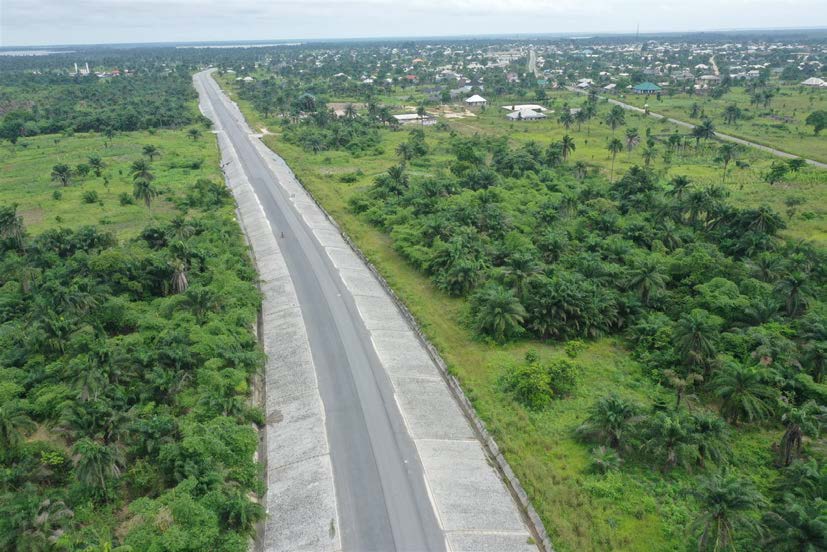The Federal Government has pledged that the N120bn Bodo-Bonny Road crisscrossing four local government areas of Rivers State will be ready in 2022.
The Director, Road Designs, Federal Ministry of Works and Housing, Omotayo Awosanya, who gave the assurance while inspecting the project last Friday, said funds had been made available to ensure that the road was delivered as scheduled.
Awosanya said the 37.9km project, traversing Bodo, Opobo and Andoni to Bonny Island, comprises 14 bridges – three and nine mini bridges.
“As you can see, 4.3 kilometres of the project has been asphalted, and the bridge at Alpha Creek has been completed. We have nine mini bridges, three major ones and a transition bridge that opens up Opodo channels.
“So far, the project accomplishments is 31 kilometres and we are believing that with the speed the contractor has put in of recent, the project will likely be delivered as scheduled,” he stated.
According to Awosanya, the President, Major General Muhammed Buhari (retd.), attached great importance to the project because of its economic value to the country.
READ ALSO: Abuja-Kaduna-Zaria-Kano road construction delayed due to expansion of road- Fashola
He said, “The President is very interested in this critical project because it will not only open up Bonny Island, which is very vital to the nation’s economy, this project will also reduce the cost of oil productions and other economic businesses in Rivers State.”
The Project Manager, Julius Berger Plc, Thomas Haug, said the project had witnessed enormous progress since 2017, noting that fund was not a challenge.
Also, the engineer representing the Federal Government, Eseme Udoh, said the project would contribute immensely to the development of the Niger Delta region and open up opportunities for rapid economic opportunities.
The traditional ruler of Ataba Kingdom in the Andoni Local Government Area, His Royal Majesty Dr Benson Egwenre, said the project meant a lot to his people, as many riverine dwellers had been faced with challenges of accessing their ancestral homes for decades.













